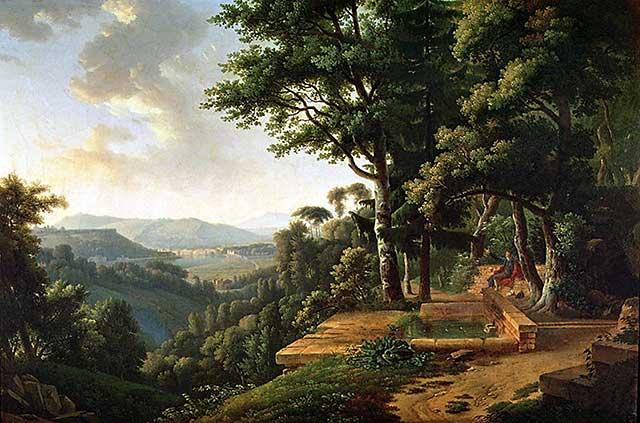Previous: ⇐ Carlo Michelstaedter Part 1 Next: Giovanni Gentile ⇒ The is the second of two parts, in which Julius Evola details his intellectual debt to Carlo Michelstaedter. From Saggi sull’Idealismo Magico. In order to illuminate Michelstaedter’s central problem, it may be useful to connect the concept of insufficiency or … Continue reading
Category Archives: Philosophy
Carlo Michelstaedter, Part 1

There is a man in whom the demand of the real individual toward absolute value, toward conviction, has been confirmed in the modern epoch, like a lightning flash and in a reality intense with life; this man, who in the clearest way, by shattering all compromises by which the I has been able to take life to its goal. Continue reading
Rousseau’s Third Solitary Walk

Patience, kindness, resignation, integrity and impartial justice are goods that we can take with us and that we can accumulate continually without fear that death itself can rob us of their value. Continue reading
Prolegomena to Noble Philosophy
Nobility, the quality which I call true aristocracy, requires of a man the recognition of his guilt. In its depths, conscience, which is frequently covered up and suppressed, is always a consciousness of guilt. The necessary thing is to take upon oneself as much guilt as possible and to put … Continue reading
Europe in Dormition

It is man himself who rises above humanity and becomes God. And even God is no longer a reality who already is, but the God who is begotten in us and is ourselves insofar as we with our whole being rise to Him. Here mind is no longer intellect but will. The world is no longer what is known but what is made Continue reading
The Restoration of Aristocracy

Aristocracy means rule by the best. Hence, anyone interested in the reconstitution of an elite must first understand what is the best way to live. Continue reading
The Sane Man believes in God
L’uomo sano crede in Dio e nella libertà del suo spirito. Anche senza rendersene conto, presuppone l’uno e l’altra, in ogni suo atto e in ogni sua parola. A cominciare dall’idea medieval, che è poi l’idea classica or greca, di Dio come esse quo maius cogitari nequit o essere perfettissimo … Continue reading
The Western Tradition Reviewed
In which we review some prior posts on the western tradition and demonstrate the inner continuity from the Vedics through the Greeks to the Medievals. We also articulate the essence of idealism and the nature of the priest. We have several times pointed to the three great Indo-European civilizations: the … Continue reading